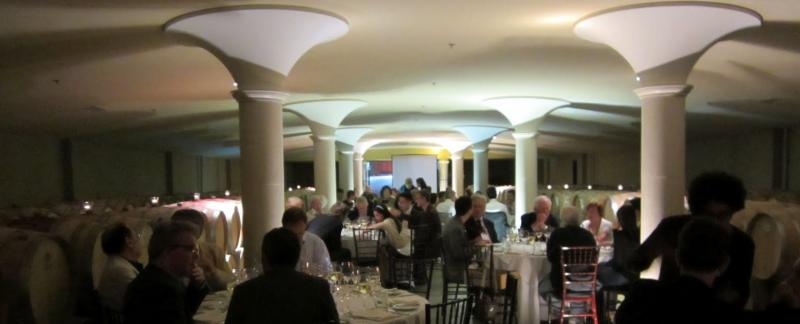[This post was written three weeks ago on antiquated in to paper media and it has taken me this long to post it online. ]
The setting is often rural. Our 2012 host was Brock University in Ontario’s wine country. We were treated to a liquid dinner at the concluding banquet. To my taste the wines were sweet and light, though my palate lacks the lexicon to report the experience in full.

Wine is not the liquid I want to write about. My topic is the fluid dynamics of ideas.
As a doctoral student I was encouraged to read Michel Foucault on the mandatory search for a framework for my research. So I read the Archaeology of Knowledge. One passage of the book stuck with me:
in the disciplines that we call the history of ideas, the history of science, the history of philosophy, the history of thought …, in those disciplines which, despite their names, evade very largely the work and methods of the historian, attention has been turned, on the contrary, away from vast unities like “periods” or “centuries” to the phenomena of rupture, of discontinuity. Beneath the great continuities of thought, beneath the solid, homogeneous manifestations of a single mind or of a collective mentality, beneath the stubborn development of a science striving to exist and to reach completion at the very outset, beneath the persistence of a particular genre, form, discipline, or theoretical activity, one is now trying to detect the incidence of interruptions.
I now realize that Foucault’s opposition between continuity and discontinuity is not much of a historiographical distinction, but it was a useful mantra to get me on my way, breaking up the record in the mandated interruptions. My history training became to place signposts on the road and talk of how ideas change, fundamentally.
Perhaps today’s historiography has too much of discontinuity. At the Brock meetings it seemed, particularly in the plenary talks, that the mandate was to find continuity. The conference opened with Craufurd Goodwin speaking of the similarities between Walter Lippmann’s economic opinion and JM Keynes’ work. Samuel Hollander spoke of how Adam Smith’s views on the state are extensive with more contemporary ones. The same theme of continuity expressed itself in some of the sessions such as one on the brothers Polanyi (Karl and Michael).
Except that it is never merely continuity, or a simple matching of statements. Historians speak instead of notions that spill. Ideas drop their stain here and there and we get to see them against the light. At times the leakage of ideas seeps deeply and one can’t isolate the bit of text that carries the intruder. The historian has then to extract the essence, distil, thrice-filtered to show the connections.
I appreciate the craftsmanship of this kind of intellectual history. I confess I lack the patience to go through the fabric with the magnifying lens in hand or sit by the decanter reading and re-reading the text. My taste is more hurried and clumsy. I rather not probe, my taste is to assemble and puzzle over the record. It calls for an eye for composition and a peculiar sort of imagination. For me it is also, and still, a lot about interruptions. It makes for unbalanced narratives and summer headaches.



